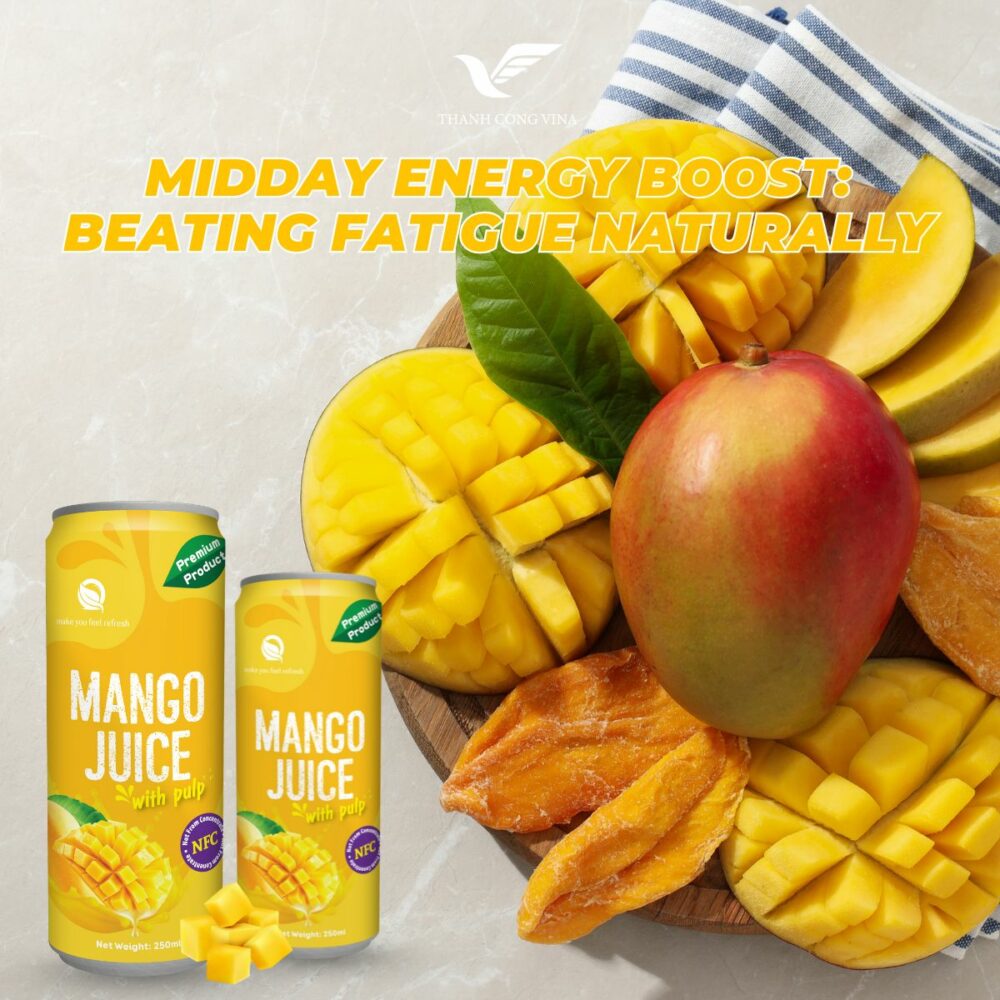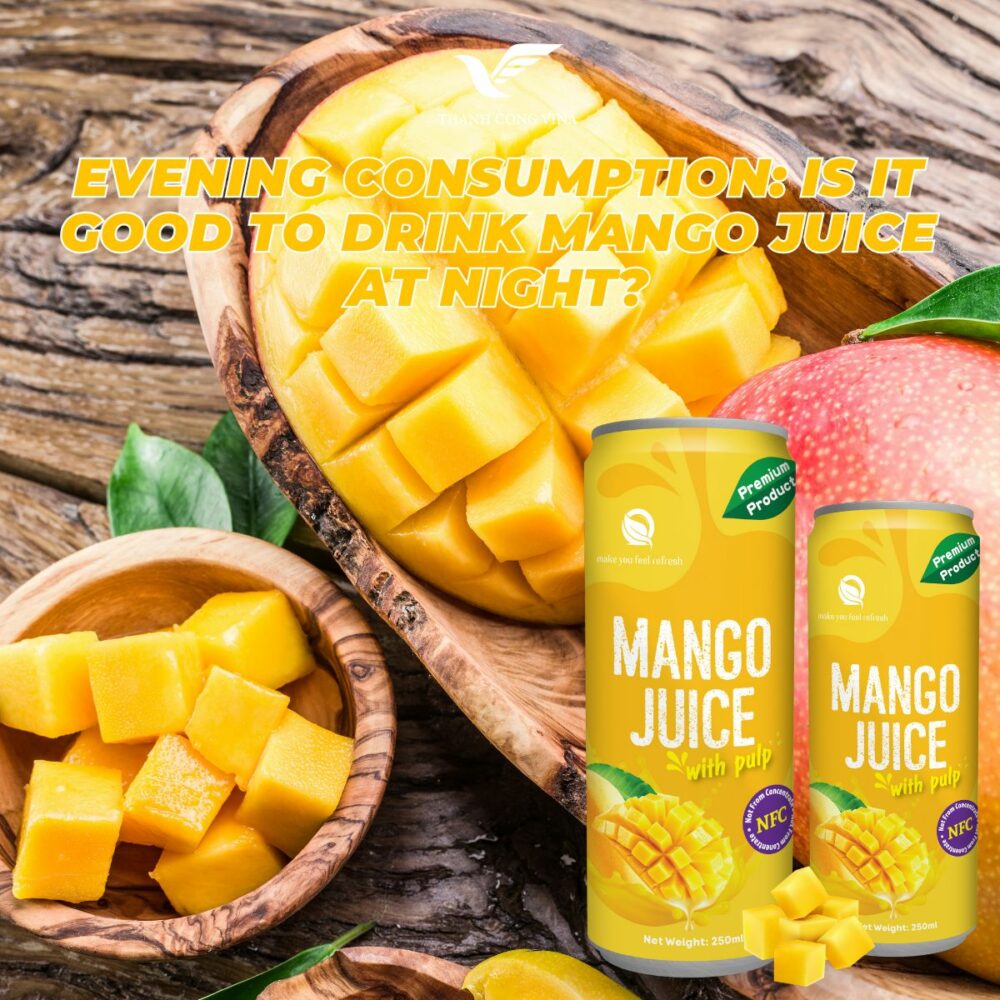Mango juice is more than just a tropical delight—it’s a nutritional powerhouse packed with vitamins, antioxidants, and digestive enzymes. Many health-conscious people are turning to fruit-based beverages to improve digestion, hydration, and energy levels naturally. However, one key factor that’s often overlooked is timing. When you drink mango juice can significantly affect how your body absorbs its nutrients and how effectively it supports your health goals. Whether you’re aiming to boost immunity, enhance digestion, or simply enjoy glowing skin, drinking mango juice at the right time makes all the difference.
In this article, we’ll explore the science behind mango juice’s nutritional benefits, the best times to drink it, and practical tips to maximize its effects throughout your day. You’ll also learn how to pair mango juice with meals, exercise, and lifestyle routines for optimal wellness results.
1. Nutritional Profile: Why Mango Juice Deserves a Spot in Your Diet

Why Mango Juice Deserves a Spot in Your Diet
Vitamins and Minerals for Daily Wellness
Mango juice is rich in essential vitamins like vitamin A, vitamin C, and vitamin E—each playing a vital role in immune support, skin rejuvenation, and cell repair. Vitamin A supports healthy vision, while vitamin C acts as a powerful antioxidant that strengthens your immune system and aids collagen production.
Natural Energy from Carbohydrates
The natural sugars found in mango juice—primarily fructose and glucose—provide a quick source of energy. This makes mango juice an excellent pre-workout or morning beverage for those needing an instant energy boost without caffeine.
Hydration and Electrolytes
Mango juice contains potassium and magnesium, which help maintain proper fluid balance and support muscle function. Drinking mango juice during hot weather or after exercise can restore lost electrolytes and prevent dehydration.
Digestive Enzymes for Gut Health
Mangoes contain natural enzymes like amylases, which help break down carbohydrates into simple sugars for easier digestion. Drinking mango juice regularly can support gut health and reduce bloating or indigestion.
2. Morning Routine: Why Drinking Mango Juice in the Morning Works Best
Kickstart Your Metabolism
Drinking mango juice first thing in the morning helps jumpstart your metabolism. The natural sugars provide quick energy, while vitamin C helps activate digestive enzymes that prepare your body to absorb nutrients from breakfast more efficiently.
Boost Hydration After Sleep
After several hours of sleep, your body naturally becomes dehydrated. A glass of mango juice in the morning replenishes fluids, provides electrolytes, and sets a refreshing tone for the day.
Enhance Nutrient Absorption
Consuming mango juice on an empty stomach allows your digestive system to absorb vitamins and antioxidants without interference from other foods. This ensures you get the maximum benefits from every sip.
Morning Smoothie Option
For added fiber and protein, blend mango juice with oats, chia seeds, or yogurt. This combination supports satiety and sustained energy throughout your morning activities.
3. Midday Energy Boost: Beating Fatigue Naturally

Midday Energy Boost: Beating Fatigue Naturally
Why Mango Juice Is a Perfect Midday Drink
Around midday, energy levels tend to drop due to stress, workload, and digestion. Drinking mango juice during this time can help restore alertness and concentration naturally. The glucose and vitamins in the juice provide a clean, healthy energy lift.
Pairing Mango Juice with Lunch
Mango juice pairs well with light meals such as salads, rice bowls, or grilled proteins. It not only enhances flavor but also helps digest heavier foods more comfortably thanks to its enzyme content.
Hydration and Brain Function
Mango juice keeps you hydrated, which is crucial for maintaining focus and productivity. Dehydration often manifests as fatigue, so sipping mango juice between meals can help you stay sharp throughout the afternoon.
Reducing Sugar Cravings
Because mango juice has a naturally sweet taste, it can curb cravings for processed desserts or sugary snacks, making it a healthier option for satisfying your sweet tooth.
4. Pre- and Post-Workout: Timing Mango Juice for Physical Performance
Pre-Workout Benefits
A small glass of mango juice about 30 minutes before your workout supplies your muscles with quick-digesting carbohydrates for energy. The potassium content also helps prevent cramps and supports muscle function during intense activity.
During Exercise
For longer workouts or outdoor activities, sipping mango juice diluted with water provides both hydration and carbohydrates, maintaining your stamina without feeling heavy.
Post-Workout Recovery
After exercise, your body needs to replenish glycogen stores and repair muscle tissue. Mango juice contains simple sugars that help refuel your muscles quickly, while vitamin C reduces oxidative stress from physical exertion.
Combine with Protein for Best Results
For post-workout recovery, pair mango juice with a protein source like Greek yogurt or a protein shake. This combination promotes muscle recovery and reduces fatigue.
5. Evening Consumption: Is It Good to Drink Mango Juice at Night?

Is It Good to Drink Mango Juice at Night?
A Gentle Digestive Aid
If you experience mild constipation or bloating in the evening, a small glass of mango juice after dinner can promote digestion. The natural enzymes and fiber help process your meal efficiently and reduce discomfort.
Avoiding Late-Night Sugar Spikes
While mango juice is healthy, it’s best to avoid drinking it too close to bedtime since its natural sugars may increase energy levels, making it harder to fall asleep. Ideally, finish your last glass two hours before going to bed.
Promotes Relaxation and Hydration
When consumed moderately, mango juice provides hydration and gentle sweetness that can help you unwind after a long day. Its pleasant flavor and aroma can even have a calming effect.
Best Evening Pairings
Pair mango juice with light dinners such as grilled fish, steamed vegetables, or a fresh fruit salad to balance sweetness with nourishment.
6. Seasonal and Health-Specific Timing for Drinking Mango Juice
During Summer: Stay Cool and Hydrated
In hot climates, drinking mango juice mid-morning or early afternoon helps maintain hydration and electrolyte balance. The cooling nature of the fruit prevents heat exhaustion and provides a refreshing energy lift.
For Immunity and Skin Health
If you’re looking to boost immunity or improve skin tone, drink mango juice in the morning to maximize vitamin C absorption. This nutrient is essential for collagen synthesis and immune defense.
For Digestion and Constipation Relief
Drinking mango juice after meals can stimulate digestive enzyme activity, making it effective for those with sluggish digestion. The natural fiber helps improve bowel regularity over time.
For Weight Management
If you’re controlling calorie intake, enjoy a small glass of mango juice as a snack substitute between meals. It’s satisfying, nutrient-dense, and helps reduce cravings for less healthy options.
7. How to Maximize the Health Benefits of Drinking Mango Juice

How to Maximize the Health Benefits of Drinking Mango Juice
Choose Natural or Fresh Options
For optimal benefits, select mango juice made from real fruit without added sugars or preservatives. Freshly blended or cold-pressed varieties retain the most nutrients.
Dilute for Balanced Hydration
If you’re monitoring sugar intake, mix mango juice with water or coconut water. This not only lowers calories but also enhances hydration.
Combine with Other Superfoods
Add lemon, mint, or turmeric to your mango juice to amplify its detoxifying and antioxidant properties. These ingredients enhance flavor and add extra nutritional value.
Mind Your Portion Sizes
While mango juice is healthy, moderation is key. Stick to 200–250 ml per serving to enjoy the benefits without consuming excess sugar.
8. Common Mistakes to Avoid When Drinking Mango Juice
Skipping Whole Fruits
Juice alone lacks the fiber of whole mangoes. Try alternating between eating whole fruit and drinking mango juice to maintain healthy digestion and blood sugar balance.
Drinking on a Full Stomach
Consuming mango juice right after a heavy meal can slow digestion. Allow at least 30 minutes between eating and drinking for better nutrient absorption.
Buying Low-Quality Brands
Some commercial mango juices contain artificial sweeteners, flavorings, or colorings. Always choose trusted brands that emphasize natural ingredients and quality control.
Overconsumption
Even natural sugars can be excessive when consumed too frequently. Limit your intake to one or two servings a day, depending on your diet and activity level.
Conclusion: Enjoy Mango Juice the Smart Way
Knowing the best time to drink mango juice helps you get the most from its rich nutrients and natural enzymes. Whether consumed in the morning for an energy boost, after workouts for recovery, or during hot days for hydration, this tropical beverage offers multiple health benefits—from digestion to immunity. By timing your intake properly, you can enhance absorption, prevent sugar spikes, and make mango juice a consistent part of your wellness routine.
For the highest quality and best-tasting Drink Mango Juice, choose TCVina, a trusted brand committed to producing natural, refreshing beverages made from premium mangoes. Every bottle from Thanh Cong Vina IEP CO., LTD captures the essence of tropical flavor and nutrition—helping you stay energized, hydrated, and healthy every day.













